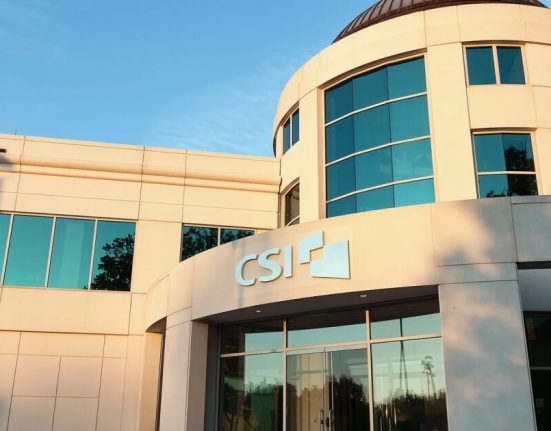Revolut investor John Doran helped setup TCV’s Europe operates but is now relocating to help head up its Bay Area headquarters.
TCV
Spotify, Netflix, and Zillow investor TCV was one of the first growth equity funds to set up an European operation. Now, John Doran, who helped open the fund’s London office as a general partner, is now relocating to San Francisco to head up its operations.
Doran has made a string of late-stage bets on fast-growing startups like British digital bank Revolut which was last valued at $45 billion, Swedish fintech Klarna and classified marketplace Adevinta since joining TCV in 2012. He became the fund’s co-managing partner, along with TCV cofounder Jay Hoag in 2022.
The move also lines up the next stage for the fund, which just celebrated its 30th anniversary and is one of the oldest of Silicon Valley’s so-called crossover funds, investing in larger startups and public tech companies. Hoag continues to co-lead the fund and make investments, but Doran has emerged as the successor for the veteran investor. “Having John here will be huge because he’s very hands-on and brings a global perspective to America,” said Hoag. “I think we really want to up our game for the next 10, 20, 30 years at TCV. I doubt I’ll be celebrating the 60th anniversary in 30 years. But someone here will.”
Doran’s relocation doesn’t mark a retreat from Europe for TCV, with partners Michael Kalfayan and Muz Ashraf now leading the London office. “The technology market here is incredibly deep and vibrant, and with the AI revolution there’s a ton of innovation happening,” Doran told Forbes. “We see tremendous opportunity here in what’s been our traditional headquarters.”
Doran is one of three partners who call the shots on new investments, along with partner Woody Marshall, who is known for his 2013 bet on Spotify, now worth $144 billion, and Hoag, whose initial 1999 bet on Netflix led to TCV owning a 43% stake in the company at the time of its 2002 IPO. The streamer has ballooned to a $512 billion market cap in the two decades since, with Hoag as a board member throughout.
A new wave of AI startups have helped revitalize San Francisco, but the intense competition poses a challenge for investors like TCV, which has $22 billion in assets. Rival growth funds have made huge investments in loss-making AI model builders like OpenAI, Anthropic, and Elon Musk’s xAI that have soared in valuation over the last 18 months.
For now, TCV has reservations about the economics of some AI players but is making bets in the application layer, like AI tracking tool Arize. Meanwhile, its existing portfolio companies are investing heavily in AI. “It feels like a lot of this money going into AI won’t have a return associated with it, but a small number will be phenomenal,” warned Hoag. “As a growth investor, we have to identify the next generation of magical companies like Netlifx, Spotify, or Revolut.”
TCV does have the dry powder to fund new AI investments after raising a new $3 billion fund last year, one of the largest fundraises for a tech-focused fund, despite broader funding challenges in the ecosystem. Pitchbook data shows that fund raising from U.S. venture capitalists collapsed to $76 billion in 2024 from its peak of $188 billion in 2021.
Venture capitalists rarely disclose fund performance but TCV is backed by several public sector funds like California Public Employees’ Retirement System (CalPERS) that do publish summaries of investment returns. CalPERS data shows that its investment in TCV’s X fund had generated a net internal rate of return (IRR) of 21.5% and was one of the pension fund’s top performing private fund investments.
Software company Carta tracks investment data from over 2,500 venture funds, including earlier stage and higher risk funds, and found that funds that started investing in 2019 had a median IRR of 6.7%. CalPERS also invested in TCV’s XI fund in 2021 that’s currently showing a -1.5% net IRR, which is behind the Carta average of -0.9% for the cohort of funds that started investing in 2021. Other CalPERS tech fund bets from the same vintage have also undershot but it is hard to gauge long-term performance in the early innings of funds that often have a life span of more than ten years.
TCV declined to comment but sources close to the fund said that it returned over $4 billion of capital to its backers in 2024 alone, and over $15 billion since 2020, with the latter period marked by a severe drought of initial public offerings and takeovers that left investors, and their backers, often starved of liquidity.
Bumper initial public offerings from Coreweave, Chime and Figma this year could signal more potential exits on the horizon for tech investors like TCV. The Menlo Park-based fund has already had one of its investments Hinge Health go public this year in a $3 billion initial public offering (albeit at a 52% lower valuation than its last round in 2021), while Klarna filed to go public on the New York Stock Exchange earlier this year, and Revolut was reportedly in talks to raise at a $65 billion valuation earlier this year.







